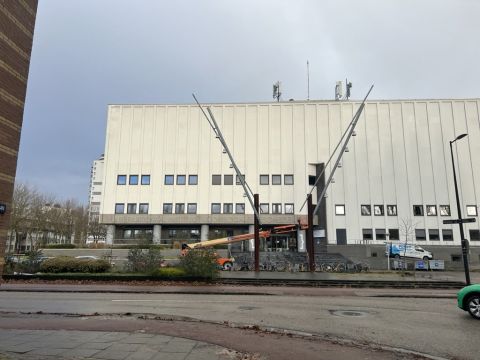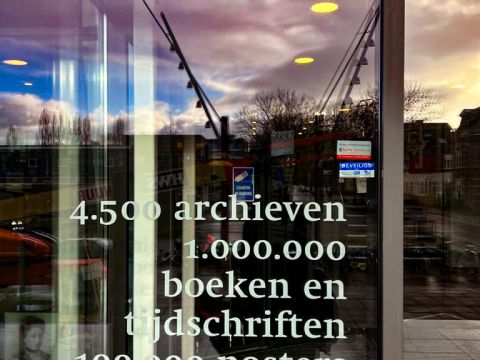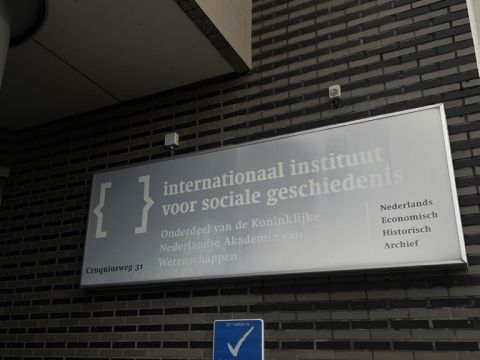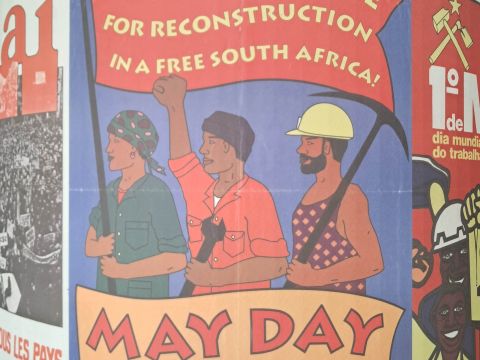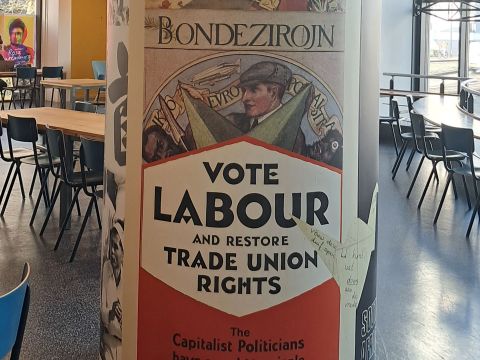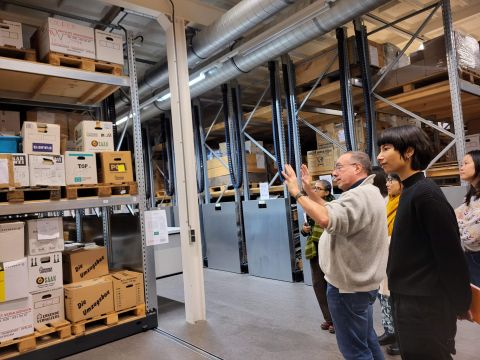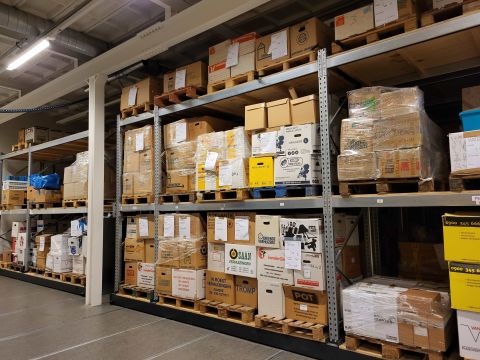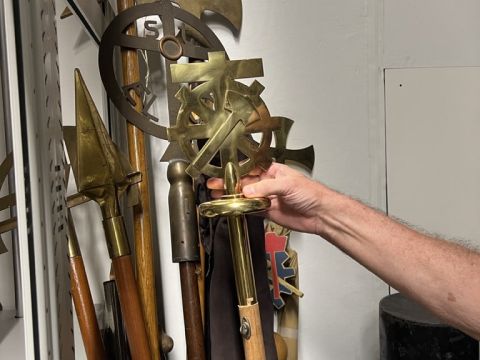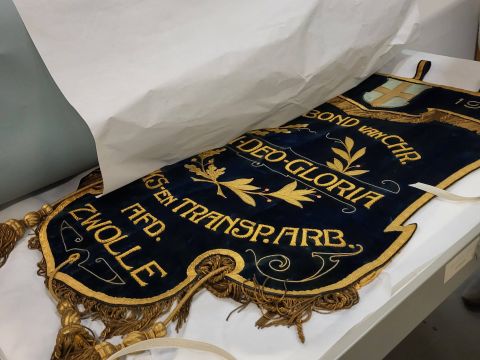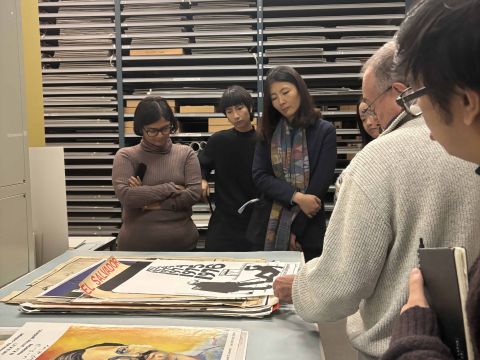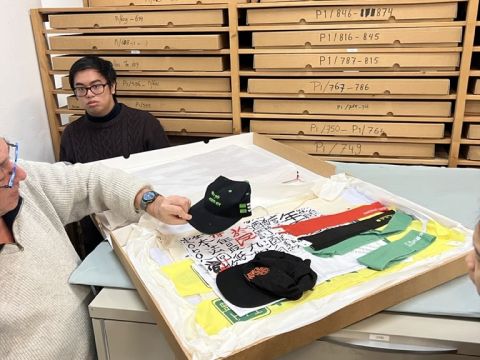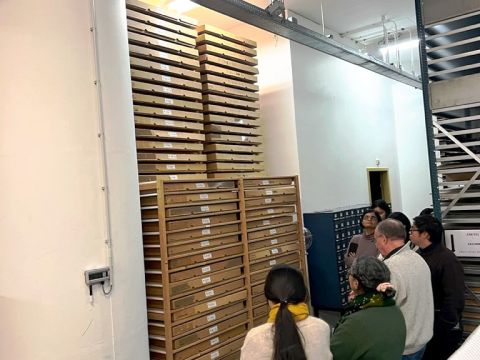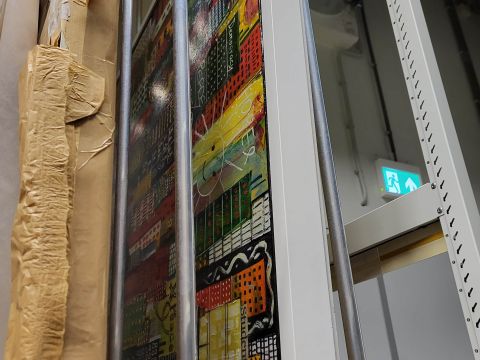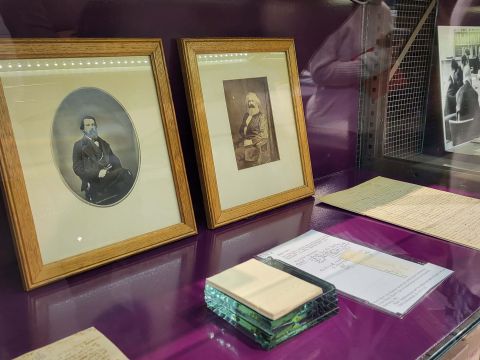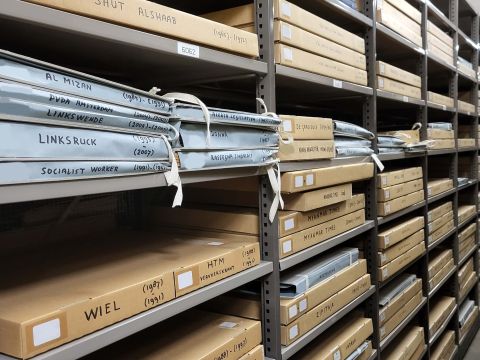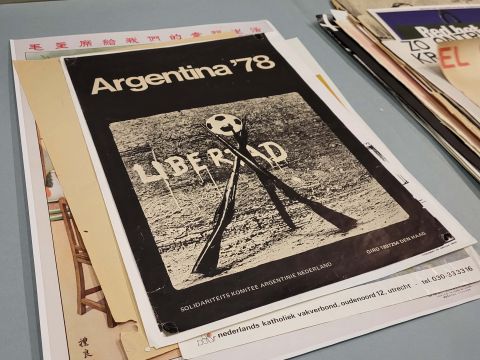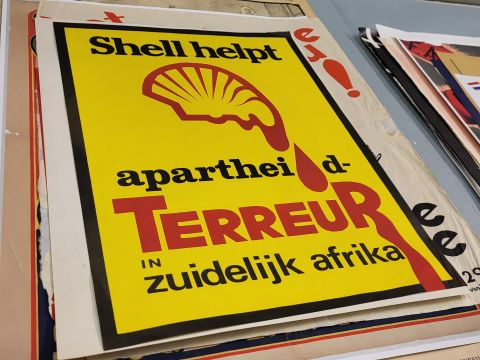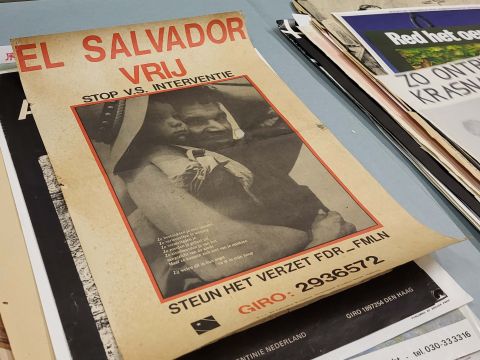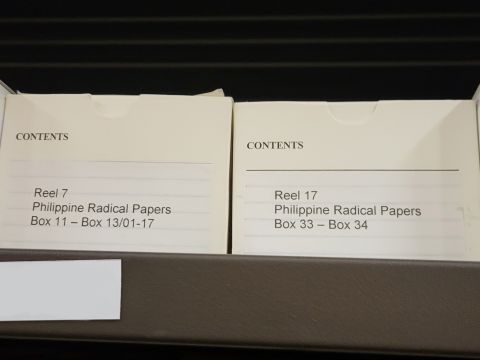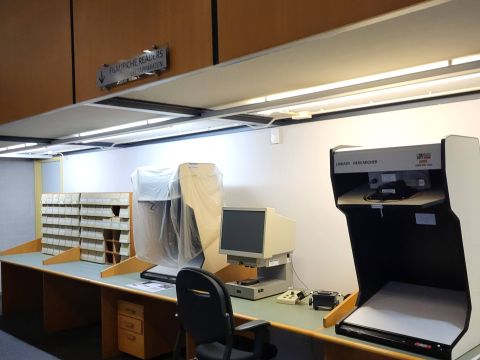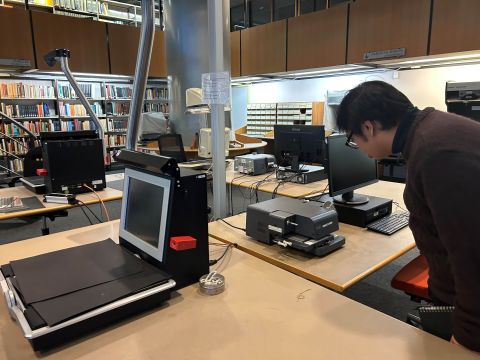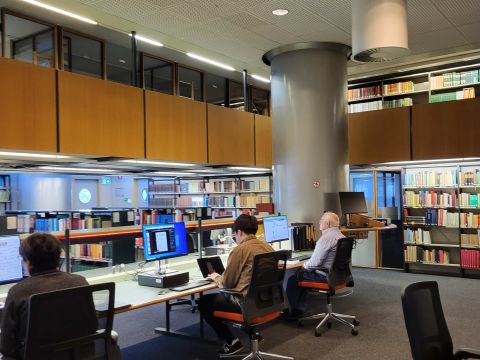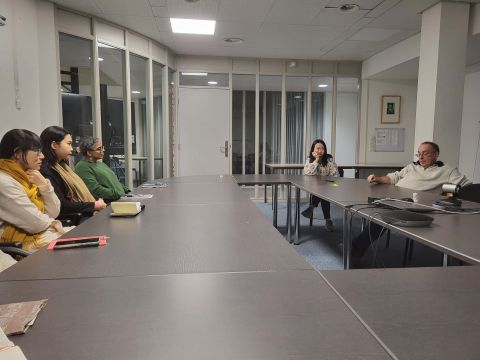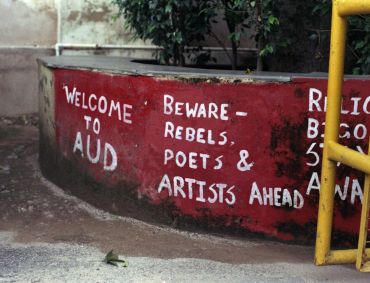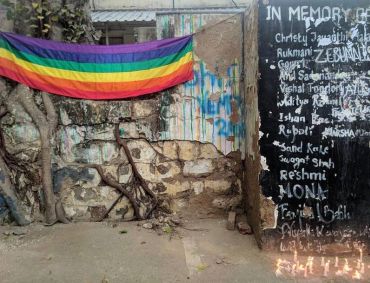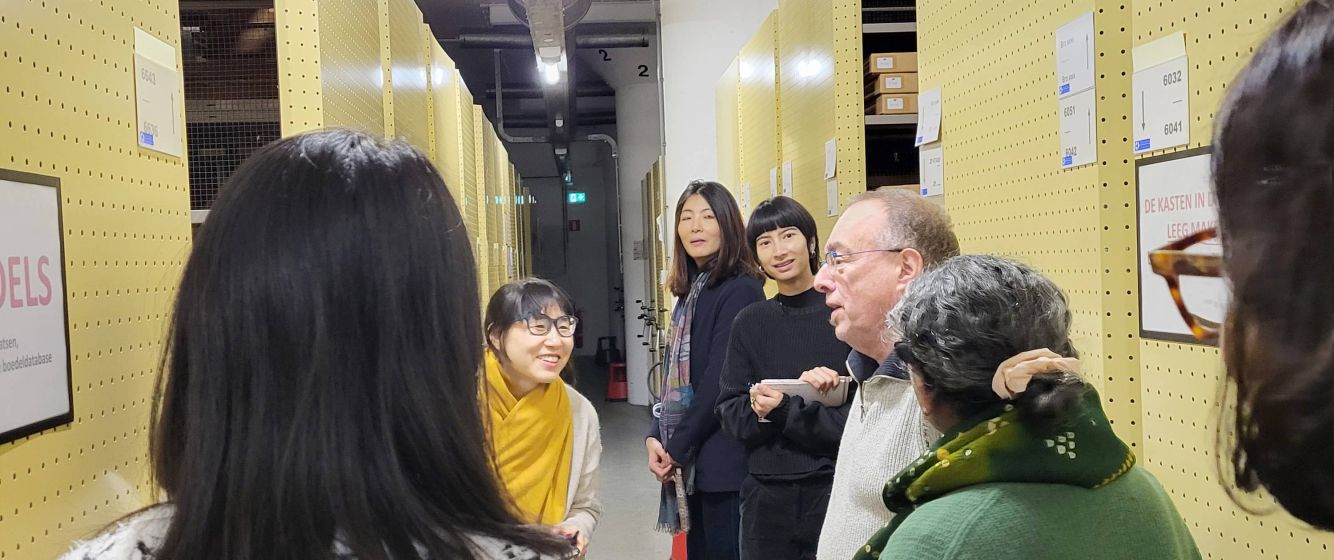
IIAS Fellows touring the inside of the International Institute for Social History (IISH) archives in Amsterdam.
Photo Credit: Enrico Joaquin Lapuz (2024)
IIAS Fellows Visit the International Institute of Social History (IISH), Amsterdam
Two weeks ago, the IIAS fellows travelled to the International Institute for Social History (IISH) in Amsterdam to tour their archives, which house one of the largest collections on the history of labour and social movements worldwide. The IISH in collaboration with societal groups, collects, manages, and preserves materials for sustainable accessibility of information.
In this HAB blog piece, we share some photographs of the visit to provide a small window into the institute and the stories behind the social movements whose materials are kept in the archives.
At the start of the tour, the fellows were greeted by Eef Vermeij, the institute’s collection specialist for Asia, at the entrance of the IISH. Over some coffee and tea, the fellows eagerly displayed their curiosity and soon had many of their questions answered, such as how and why the institute was founded. First established in 1935 by economic historian Nicolaas Wilhelmus Posthumus (1880-1960), the IISH's archive initially catalogued archives of companies and related organisations and collected other sources relevant to economic history like material from individuals and organisations in the Dutch labour movement.
A collection of trade union posters in the IISH cafeteria. In the center, the poster calls to "Vote Labour and Restore Trade Union Rights". On the top-left, the poster says De Moderne Vakbeweging Eischt Een Vakantieregeling, which means "The Modern Trade Union Movement Demands a Holiday Scheme" in Dutch.
Photo Credit: Meera Venkatachalam (2024)
The institute's building, located along the water in the Eastern Docklands neighbourhood, was originally a warehouse that received and stored cacao from the Dutch East Indies. Because the cacao came in large quantities and had a high risk of catching on fire, the warehouse was designed to be tall and wide, as well as temperature-regulated. This would serve the IISH well when later moving into the premises. During the 1990s, the IISH began to collect materials concerning social movements outside Europe.
While Eef took the fellows to the top floor, he shared how he became affiliated with IISH. He started at the department for contemporary German social movements in 1993 but transitioned into a full-time position to coordinate the Asia department, travelling across the region to collect material as IISH's representative. Upon entering the large elevator, it became clear that the former cacao warehouse was not simply an archive for paperwork. Quite the contrary, the first room of the tour accommodated large boxes of cardboard and wood containing banners, textiles, doors, paintings, and many archival materials outside the category of paper matter.
Dutch poster protesting the 1978 World Cup being held in Argentina during Gen. Jorge Rafael Videla's military dictatorship of the country. In the center image are rifles propping up a football, with the Spanish word libertad or "freedom" in the background.
Photo Credit: Enrico Joaquin Lapuz (2024)
A Dutch protest poster calling for support and donations for victims of the Salvadoran Civil War in South America, which occurred from 1979 to 1992. The poster includes a photograph of a father and a child in the centre, with the top words stating "Free El Salvador" in Dutch, along with a poem in the bottom-left talking about resilience in the face of violence and tragedy.
Photo Credit: Enrico Joaquin Lapuz (2024)
In the relatively short period of the tour, it was immediately clear that the scope of social movements that the IISH covered in their archives was extensive. What was surprising and interesting to note about many of these social movements was the interconnectedness and awareness shown by communities not inherently tied to what was going on. Whether it was Dutch posters boycotting businesses contributing to apartheid in South Africa and an Argentinian military dictatorship hosting the World Cup, or Bengali communities creating hats and signs in support of the Hong Kong protests, it showed that these movements embedded in their social contexts, had a global impact and enabled experiences of relatedness across borders.
People can find many of these objects in the IISH's online catalogue, with the reading room of IISH also providing documenting facilities such as scanners which are free to use.
That said, certain materials were inaccessible during the tour (and to those viewing the archives) for a variety of reasons, like the material's fragility and whether it could be physically viewed without being damaged. When cases like these came up, digitization was an option available, with multiple backup copies created and stored in other locations outside the institute. This also had its own sets of challenges, however. An example mentioned by Eef was video formats like Betamax and DVDs, where either the playback machine was now difficult to find, or the file format was degrading quicker than expected, making digitization more difficult compared to audio cassettes.
Another major reason why not all materials were accessible was for security, due to some of the materials’ politically sensitive nature placing people at risk. Due to this, the IISH’s ethics policy is also extremely strong, with plans in place to make sure materials could not easily be destroyed.
By 12:30, Eef wrapped up the tour sharing how he collected as many materials as possible when he stayed in South-East Asia such as flags people had discarded on the streets, impressing the fellows with his preservation dedication.
As a collection, the IISH archive holds an unparalleled range of objects and documentation on societal politics and protests, especially in Asia. Though the institute mainly operates as an archive, its diligent work in following social movements around the world and strong connections with local organisations to collect materials also act as a place to understand lived experiences, bringing these local stories and issues into play with larger, inter-regional concepts of identity that connect multiple cultures.


